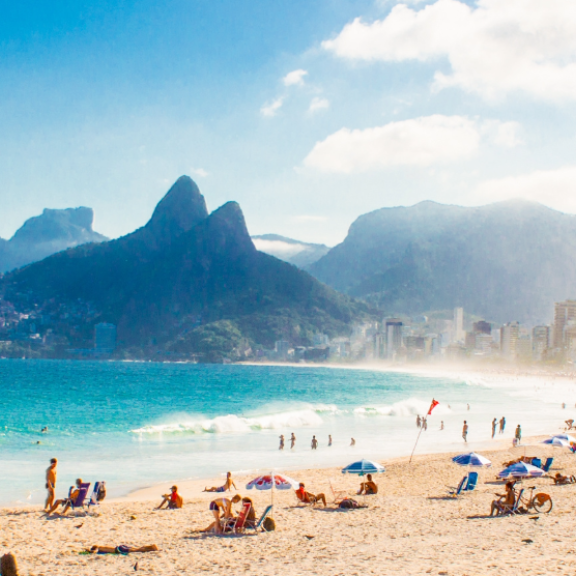
Emigrate to Brazil
Emigrate to Brazil: Find out the most important information for your stay here
Brazil is a vast country in South America, stretching from the Amazon basin in the north to the vineyards and majestic Iguaçu Falls in the south. For many who want to emigrate to Brazil, the country's diversity is particularly attractive. The landmark of Rio de Janeiro is the 38-metre-high statue of Christ on Corcovado Mountain. The metropolis is known for its lively beaches in the Copacabana and Ipanema districts as well as for its gigantic, exuberant carnival, which is celebrated with magnificent floats, colorful costumes and samba music and dancing. Emigrating to Brazil offers the opportunity to experience this fascinating culture up close and enjoy life in one of the most dynamic countries in South America.
Facts about Brazil
Capital City
Brasilia
Population
214.3 million
Surface Area
5,287,868.85 mi² or 8,510,000 km²
Continent
South America
Official Language
Portuguese
Currency
Brasilian Real (BRL)
Emigrating to Brazil: An overview of the political system
Brazil is a presidential federal republic consisting of the federal government, states and municipalities. Legislative power lies with the National Congress, consisting of the Chamber of Deputies and the Senate. The 513 deputies are elected for four years and the 81 senators for eight years. The President is elected directly by the people for a term of four years with an absolute majority.
Brazil is divided into 26 federal states and the federal district of Brasília. The states have their own constitutions and laws. The heads of government of the states, the governors, are elected directly by the people for a term of four years.
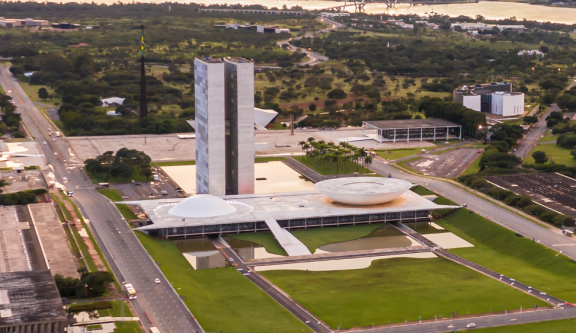
Climate in Brazil: Important information for emigrants
Large parts of Brazil are located in tropical areas. In the north and east of the country, the climate is tropical and warm all year round, while it becomes more subtropical and temperate towards the south, with significant temperature differences throughout the year. On the coast in the northeast, temperatures of over thirty degrees are common all year round, accompanied by frequent humidity. The Brazilian winter extends from June to August, while the Brazilian summer lasts from January to February. Due to a greater presence of rainfall than of temperature fluctuations, we speak of rainy and dry seasons.

Healthcare system in Brazil: Important facts for emigrants
Brazil's universal healthcare system guarantees free care for all citizens. In contrast to Germany, there is no compulsory insurance. Therefore, state health centers and hospitals are the primary point of contact for many Brazilians, both for routine examinations and for the treatment of chronic diseases, rehabilitation and the provision of assistive devices. In terms of access and care, whites under the age of 60 have the best experience. However, some families also opt for private facilities due to their financial means, as waiting times are often shorter, more modern equipment is used and the human resources are greater.

Emigrating to Brazil: An overview of the economic situation and quality of life
Brazil's gross domestic product per capita in 2023 amounted to 10,413.00 US dollars. The Gini coefficient of wealth describes the distribution of wealth. The indicator is an established, internationally comparable measure of wealth inequality. It is measured on a scale from zero to one. The higher the value, the greater the inequality. The Gini coefficient in Brazil is expected to be 0.52 in 2024 (source: Statista).
In Brazil, there are extreme differences between rich and poor, and the unequal distribution of resources could hardly be greater. For many who wish to emigrate to Brazil, it is important to be aware of these social challenges. The north-east of the country, often referred to as the poorhouse of Brazil, is particularly affected by these injustices. In this region, poverty is widespread and there are high rates of crime, drug abuse and prostitution, with street children in particular often falling victim to these circumstances. A striking feature of Brazil is the clear social inequality between the different sections of the population. Hardly any other country has such a wide gap between rich and poor. Regional differences play a decisive role here: while the south has modern economic structures, the north and north-east are considered the poorer regions of Brazil. Social inequality is particularly pronounced in these areas. One example of this is the city of Recife, where the richest twenty percent of the population claim a full 85 percent of the national income, while 40 percent of the population must earn below the legal minimum wage. Emigrating to Brazil therefore requires thorough preparation and an awareness of the country's social and economic realities.
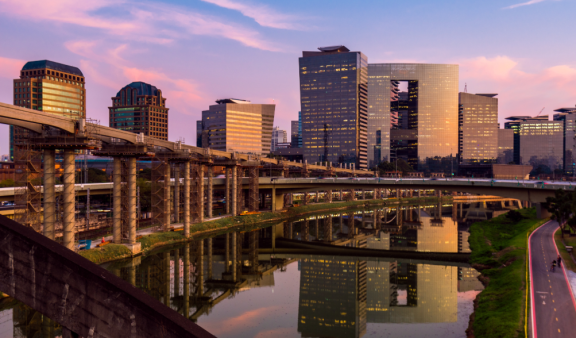
National holiday
Independence Day
Every year, Brazilians celebrate their national holiday on September 7. The national holiday is also known as Independence Day. On this day, they remember the year 1822.
Vaccination Status
Vaccinations against hepatitis A are recommended as travel vaccinations, as are vaccinations against dengue fever, hepatitis B and rabies for long-term stays or special exposure.

Emigrate to Brazil - Entry Requirements
Entry is possible for German nationals with the following documents:
- Passport: Yes
- Temporary passport: Yes
- Identity card: No
- Temporary identity card: No
- Children's passport: Yes
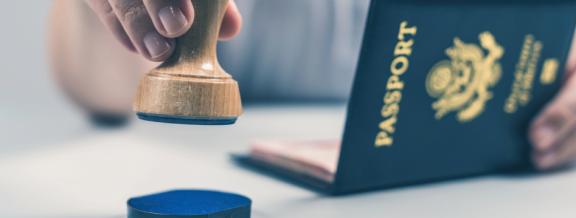
FAQs for emigrating to Brazil
Where can I find relevant information about my country of entry and the entry regulations that apply there?
We have compiled destination country information as well as entry requirements and customs information for many countries in the Relocation Service section of our website and are constantly expanding this section.
Can I use my own container that I already own for the move with DACHSER & KOLB?
For every removal, which we at DACHSER & KOLB always offer as a door-to-door (full service) removal, a container is rented for the duration of the removal. We therefore do not offer the option of using your own container.
Who is responsible for my move abroad and the services I need there?
As a FIDI member, we work abroad with selected, long-standing partners who work in accordance with our service standards.
Are my removal goods insured in the event of damage?
For every overseas move, we naturally cover transportation insurance at current value for the used household goods and personal belongings
What types of transportation do you offer for overseas relocation?
It is generally possible to carry out overseas removals via air freight or sea freight. In the case of sea freight, it is possible to ship the removal goods as additional cargo (“LCL shipment” with Liftvan) or with a container (FCL shipment in 20 feet, 40 feet or 40 feet high cube). We will be happy to discuss which option is best for you in a personal consultation.
When and how must the move be paid for and what is the payment deadline?
You will receive an invoice a few weeks after placing the order and pay the full amount directly in advance.
Do I have to pay taxes and customs duties on my removal goods?
Removal goods can be imported tax and duty-free into most countries if you have a valid residence permit. We will be happy to check the options for importing the removal goods for your desired destination country in a personal consultation.
Are you interested in moving to Brazil or another destination country?
Then do not hesitate and contact us today.
Alexander Brugger
Teamlead Customer Service & Sales - AIR&SEA



